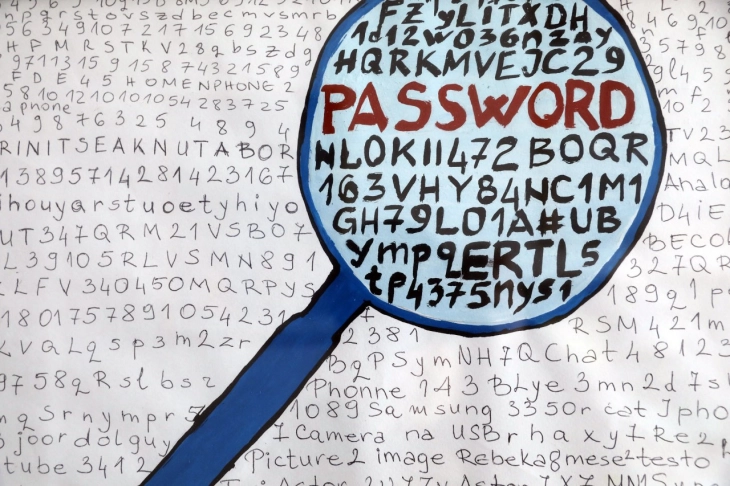Poll: Citizens concerned about their personal data online, 15% fell victim to cyber attacks

Skopje, 8 November 2022 (MIA) - Fifteen percent of respondents taking part in a poll on cyber security in the country said they were the victim of cyber crime or online harassment. Over 50 percent said they have concerns about personal data abuse. 57.3% use antivirus software and young people log online in public places more often than older people. The respondents who use social media usually create accounts using their real names and personal photos, shows a report of a public opinion poll about cyber security, released Tuesday by the Agency for Electronic Communications and the National Center for Responding to Computer Incidents (MKD-CIRT).
1,400 respondents were interviewed from September 14 to September 28 as part of a field survey. The sample is representative at national level according to the region, gender and age in line with statistical data from the 2021 population census.
A majority, 71.1% of the respondents, said they don't know or they don't believe that there is a webpage, a contact address or an email in the country where cyber crime or illegal online activities can be reported.
Most respondents use the internet for social media and communication, shows the analysis of the gathered data.
In the past 12 months, 86.8% used the internet for social media; 25.7% for services and documents from the public administration; 23.6% for studying and online courses; 9.2% for selling goods and services.
A total of 51.6% of the respondents said they are most concerned about personal data abuse when being online. Security while shopping online and having no opportunity to check the products were also pointed out as key factors causing concern in nearly 47 percent of the respondents.
The three main activities the respondents do to protect their privacy online is to install an antivirus software (39.2%), visiting only trusted websites (36.0%) and using only personal computer (35.2%).
Asked about their practices to connect to the internet in public places, half of the respondents said they connect to a mobile hotspot from their mobile phone or to a network that is password-protected and available. Some 13.4% said they never connect to the internet in public places. Younger respondents, unlike older people, log on online in public places more. 71.9% said they take security measures when using their devices.
57.3% of all respondents use antivirus software. A majority of those, 82.9%, update the software, apps and the operating systems on their devices. 77.5% use a password to log on their devices. Most respondents, 79.3%, use a combination of letters, numbers and symbols for their passwords.
The survey shows that about 20% cannot or don't know to recognize a safe password with most of them using personal data to create passwords. Almost half of the respondents remember the passwords without writing them down while a third writes them down or in a folder on the computer or mobile phone. One third of the respondents said they haven't changed their passwords in the past 12 month.
More that a third of the respondents keep a copy of important data on external devices or cloud.
Almost half of the respondents said they are not at all informed or not informed enough about cyber crime risks. The internet and other media are the main source for information in relation to cyber security. Nearly 60% of the respondents agree that their personal data are not kept safe by the webpages and by public services or institutions.
Most used social media or applications are Facebook, 88.3%, and Viber, 88.6%.
Mobile devices, 96.9%, and computers, 74.9%, are used the most to go online. Older respondents and those less educated use computers or other devices, such as tablets and TV sets, to access the internet.







